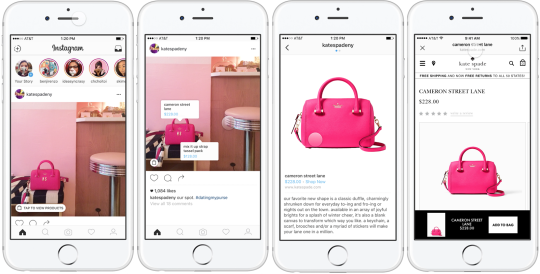What Happened
Instagram is diving deeper into social commerce as it announces that next week it will start testing a new feature that will let users buy products by tapping on non-ad posts. Working with 20 U.S.-based retailers including Macy’s, Kate Spade, JackThreads, and Warby Parker, Instagram will allow retailers to tag their photos with pricing information, product descriptions, and hyperlinks that direct users to brand websites for purchases via an in-app browser.
What Retailers Should Do
Previously, retailers have long been able to direct Instagram users to destination sites for purchases by using its Carousel ads. This new feature, however, will enable brands to turn their organic posts into ecommerce opportunities and transform their Instagram accounts into a digital storefront. While there’s certainly room for improvement such as payment integration, it is nevertheless an important step for Instagram as it continues to make its platform more business-friendly. Retailers and brands looking to harness consumer attention and sell directly on social platforms should keep a close eye on this development.
Source: Instagram for Business
Header image is a promotional image courtesy of Instagram for Business


